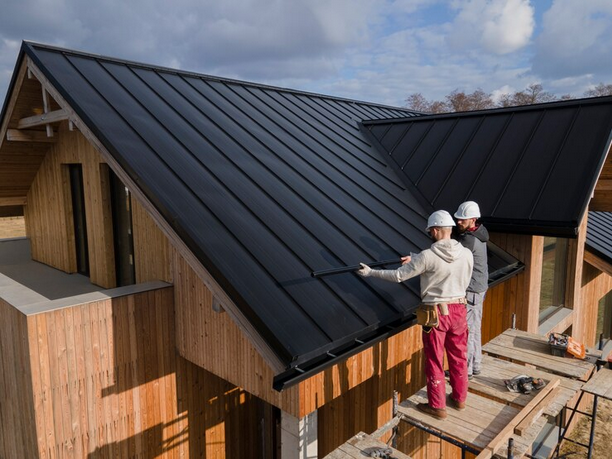Introduction:
Roof insulation is a vital yet often overlooked component in the overall efficiency and comfort of a home or building. Beyond its role in temperature regulation, proper roof insulation plays a pivotal role in energy conservation, soundproofing, and even the structural integrity of a property. This article explores the multifaceted importance of roof insulation, shedding light on its various benefits and the key considerations for maximizing its effectiveness.
Energy Efficiency:
Preventing Heat Loss and Gain:
Roof insulation acts as a barrier against heat transfer between the interior and exterior of a structure. During colder months, insulation prevents heat from escaping, ensuring that the indoor space remains warm and comfortable. Conversely, in hot weather, insulation hinders the penetration of external heat, helping to maintain a cooler interior. This thermal resistance minimizes the reliance on heating and cooling systems, leading to significant energy savings over time.
Reducing Utility Bills:
The energy efficiency gained through effective roof insulation translates directly into reduced utility bills. By minimizing the need for artificial heating or cooling, homeowners and businesses alike can experience substantial cost savings. Investing in quality roof insulation becomes a strategic long-term decision, offering a return on investment through lower monthly energy expenses.
Structural Protection:
Condensation Prevention:
Proper roof insulation plays a crucial role in preventing condensation within the structure. In cold climates, warm air inside the building can meet the cold surface of the roof, leading to condensation. This moisture can pose a threat to the structural integrity of the roof, causing issues like rot, mold growth, and deterioration of insulation materials. Effective roof insulation acts as a barrier against condensation, safeguarding the building's structural elements.
Extending Roof Lifespan:
Insulation contributes to the longevity of a roof by reducing temperature-induced stress. Fluctuations in temperature, especially in regions with extreme weather conditions, can cause materials to expand and contract. Over time, this thermal stress can lead to the deterioration of roofing materials. Roof insulation mitigates these temperature variations, minimizing the strain on the roof and ultimately extending its lifespan.
Comfort and Livability:
Temperature Regulation:
Comfortable living or working spaces depend significantly on maintaining a consistent indoor temperature. Roof insulation helps regulate temperatures, preventing drastic fluctuations that can make spaces uncomfortably hot or cold. This is particularly crucial in attics or top-floor spaces, where temperature extremes are more pronounced. Proper insulation ensures a more pleasant and livable environment throughout the year.
Soundproofing:
Beyond thermal benefits, roof insulation contributes to soundproofing, reducing external noise penetration. This is particularly important in urban areas or regions with high noise levels. Insulating against sound not only enhances comfort but also promotes a more peaceful and conducive living or working environment.
Environmental Impact:
Reducing Carbon Footprint:
The environmental impact of energy consumption is a growing concern, and roof insulation plays a role in reducing carbon footprints. By optimizing energy efficiency, less reliance on heating and cooling systems translates to lower greenhouse gas emissions. Choosing sustainable insulation materials and practices further enhances the eco-friendliness of the entire roofing system.
Choosing the Right Insulation:
Material Considerations:
Selecting the right insulation material is crucial for achieving the desired outcomes. Common materials include fiberglass, cellulose, foam board, and reflective foil. Each material has its unique properties, offering different levels of thermal resistance, fire resistance, and environmental impact. Factors such as climate, budget, and personal preferences should guide the choice of insulation material.
Proper Installation:
Even the best insulation material won't perform optimally without proper installation. A professional installation ensures that insulation is applied uniformly, without gaps or compressions that could compromise its effectiveness. In addition, sealing air leaks, such as those around vents and chimneys, is integral to preventing heat loss or infiltration.
Conclusion:
Beyond the shingles that adorn rooftops, the importance of roof insulation cannot be overstated. It serves as a silent guardian, enhancing energy efficiency, protecting the structure, and contributing to the overall comfort and livability of a space. From reducing utility bills to extending the lifespan of the roof and minimizing environmental impact, roof insulation is a cornerstone of sustainable and efficient building practices. Homeowners, businesses, and builders alike should recognize the multifaceted benefits of roof insulation, making informed decisions to create spaces that are not only aesthetically pleasing but also environmentally responsible and economically efficient. In the realm of construction and energy conservation, the role of roof insulation extends far beyond the surface, influencing the holistic performance of the entire building structure.





Comments